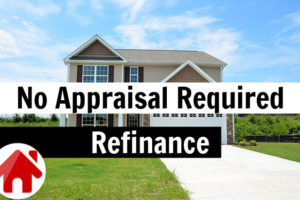If you have gotten to the point in the home buying process where an appraisal has been ordered, you’re now moving forward full steam ahead.
Pre-approved. Check.
Found the house. Check.
Offer accepted. Check.
Inspection passed with flying colors. Check.
Condo meets requirements. Check.
Time to order appraisal.
Congratulations!
It’s no secret that when buying a home an appraisal plays a significant role in completing the process successfully.
For the most part, the biggest anxiety for all parties is “did the home appraise for the contract price?” While the value is indeed extremely important, there is more that an appraisal brings to the table.
The truth is there are several crucial ways that an appraisal contributes to the approval process other than a highly detailed opinion of fair market value of the property.
Let’s look at those truths with a bit of detail and perhaps provide some clarity to the impact an appraisal has on the home buying process.
5 Reasons Your Real Estate Appraisal Matters
 Timing
Timing
Getting an appraisal back within a reasonable time frame can make or break a deal. If you’re in a rural area or in an area where the real estate market is booming, you could wait up to 3 weeks or more just to get the appraisal results. This can be even more frustrating if the appraised value comes in low or repairs are needed.
Right now there are even some areas in the country where appraisers are flat out declining appraisal orders because they know they do not have the capacity to turn the appraisal report around in a timely manner.
When the purchase contract states that the deal needs to close within 45 days, and it takes 40 days to get appraisal results, expect an extension to the purchase agreement.
 Condition
Condition
If you’re getting a mortgage, the property needs to meet some basic standards for the lender to give the thumbs up on acceptable property condition.
Common property condition issues that pop up on appraisals and cause issues: mold in the attic or basement, peeling paint on the outside of the home or garage, trip hazards, broken windows, and missing fixtures.
Anything noticeably wrong with the property is likely to be pointed out on the appraisal report including photos. When there are repairs noted on the appraisal the seller will need to complete those repairs prior to closing, and the property needs to be reinspected by the same appraiser to confirm the requested repairs have been made.
 Comparables
Comparables
When coming up with an opinion of value, the appraiser selects recently sold homes within the market that are similar in size/condition/location/amenities.
The appraiser then compares those homes with the subject property and makes adjustments based on differences and similarities between the homes.
For example: if the subject property is a 3 bed, 2 bath ranch on .5 acre, the appraiser would look to include 3 bed, 2 bath ranches that sit on a .5 acre lot. The appraiser would not be including a 3 bed, 2 bath condominium.
It doesn’t have to be identical and size and condition, but it does need to be the same property type. Unique properties can be very difficult to finance. If there are no similar properties sold within a reasonable distance and time frame (underwriter discretion) the deal could be dead. There is also a limit to how much an appraiser can make adjustments on value based on the differences in homes.
If the adjustments made are too high, the comparable property used could be considered irrelevant or unacceptable and would need to be replaced by a better comparable if possible.
 Confidence
Confidence
For some buyers the appraised value can have an impact on their ego.
Let’s say you get under contract on a house for $300,000 and it appraises for $380,000. There might be an increased warm and fuzzy feeling knowing you got a good deal. Another confidence booster in a case like this is that if you’re going to be paying private mortgage insurance (PMI) due to a low down payment, you may be able to refinance in a year and then use the new appraised value to drop your PMI (which could save you hundreds of dollars a month).
Knowing that you have instant equity in the home that you already loved to begin with can really add a nice cherry on top.
 Compliance
Compliance
The collateral (the house) used to secure the mortgage must comply with lender guidelines.
One of the biggest issues when talking about compliance has to do with finding out if the home is a non-warrantable condo (does not apply to single family homes). If the property is a condominium the appraiser will reveal information pertaining to the number of units that are owned by 1 entity, number of units that are not complete, and other important information about the condo that could cause issues. [more on non-warrantable condos here]
Another fairly common issue that can come up as a compliance issue is number of acres the property sits on. Depending on what type of loan program you’re seeking, there may be an issue with giving any value to acreage beyond 10-20 acres. For someone buying a 50 acre property, this can be a deal breaker if most of the value is in the land.
If the appraisal states subject property was recently was sold, there could also be flipping restrictions depending on what type of loan you’re seeking.
The appraisal can clearly make or break the deal in several unique ways other than home value.

In addition, if you have run into a challenge on obtaining a mortgage that you can’t seem to get around, I invite you to reach out to me for a possible solution. If I cannot help, I should be able to point you in the right direction at the very least.



 Timing
Timing Condition
Condition Comparables
Comparables Confidence
Confidence Compliance
Compliance





What questions do you have?